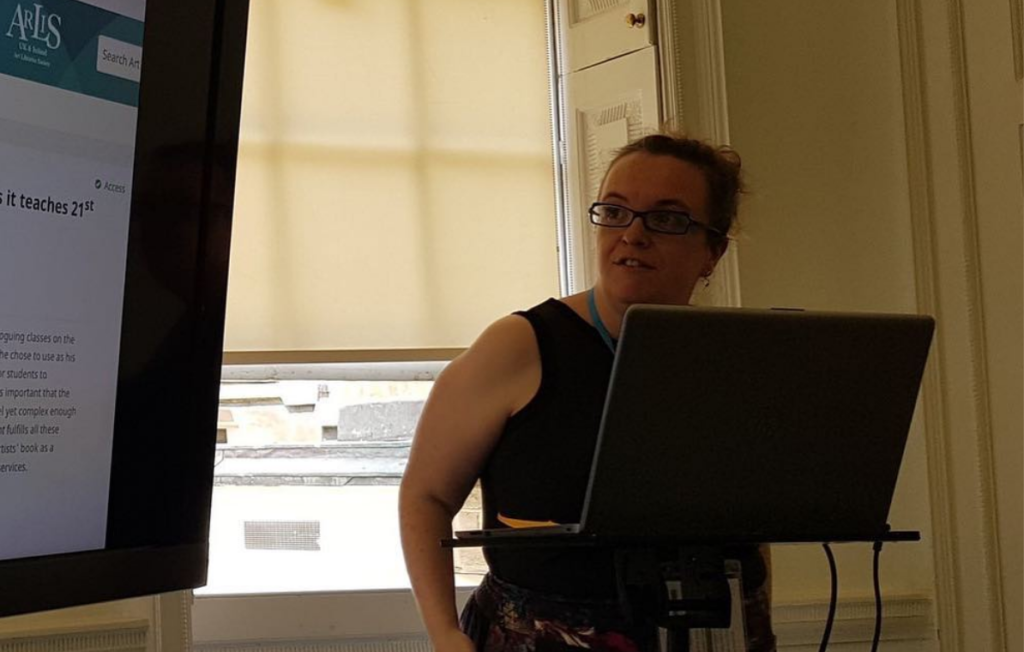
New recently on the ARLIS 2018 website:
Includes Panel 1B, in which Anne Welsh gave the paper, ‘The following | sing | I | a | book’: A Humument as ‘work in progress…Gesamtkunstwerk’ and the definition of the Work in library cataloguing’:

New recently on the ARLIS 2018 website:
Includes Panel 1B, in which Anne Welsh gave the paper, ‘The following | sing | I | a | book’: A Humument as ‘work in progress…Gesamtkunstwerk’ and the definition of the Work in library cataloguing’:
We were really happy to welcome participants to Beginning Bibliography, whose first unit materials went live yesterday.
With books stranded in my old office, my London Library membership really came into its own in preparing the course – first time using postal delivery. As usual, their service was superb.
I’ve also acquired some new old books, ordering online from various booksellers, who have similarly been quick and efficient in posting out. You can’t teach material culture without the materials, that’s for sure!
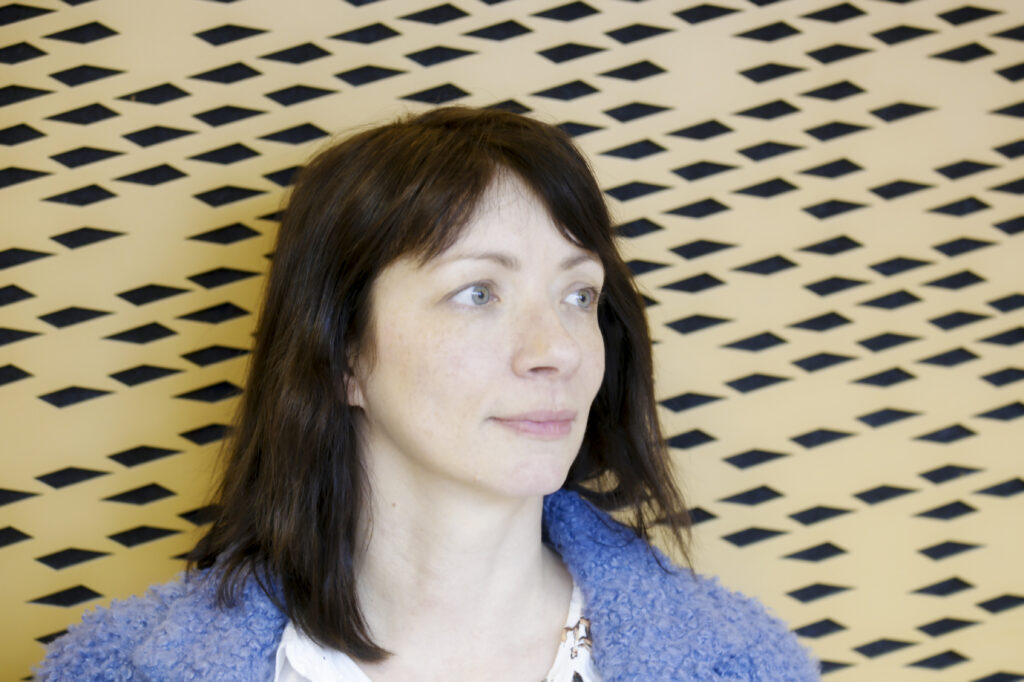
In her blog post on Concetta La Spada’s July Masterclass, Jennie-Claire Crate, University of Kent, reflects that there is always something new to learn in the world of metadata.
I started working in academic libraries 17 years ago, moving into my first metadata role after 3 years. It is well over a decade since I graduated from UCL’s Information Science course, and in that time I’ve managed a metadata team, written papers, delivered training on cataloguing, and presented at conferences. What would I find of interest in a beginner’s class on copy cataloguing?
Continue reading “Event Report: Beginning Copy Cataloguing”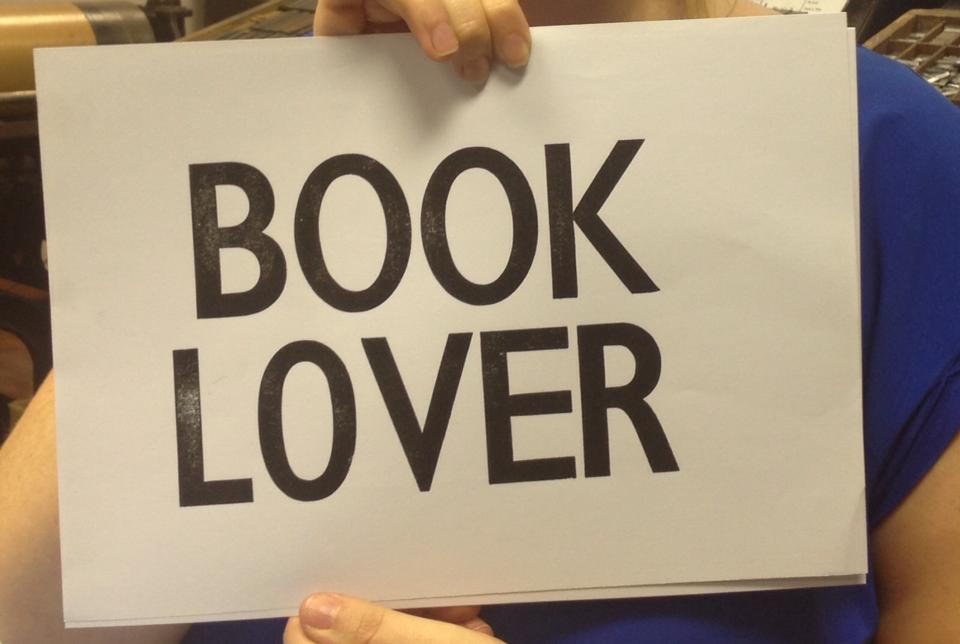
Beginning Bibliography begins on Monday. We don’t set any reading that can’t be accessed for free, so this month’s Beginnings article highlights my top five book purchases in the field.
1. Bowers for the Detail. Love it or loathe it, you cannot ignore Bowers’s tome, Principles of Bibliographical Description (Princeton, New Jersey: Princeton University Press, 1949). You would imagine bibliographers to be obsessed with detail, and Bowers was certainly that. I first read this book in 1990 and in thirty years, I’ve not found a single challenge in bibliographic description for which I have not been able to find an answer within it. If only he had been able to write in an engaging, encouraging style, I’d go so far as to say we would need no other book on how to describe a printed book. Alas! He conveys all of the detail but none of the love, and I have met some very distinguished bibliographers who have confided to me they have never been able to read his Principles from cover to cover, only dip in and out of it as and when required. Copies are available from Betterworld Books and second-hand from Abe and Abe UK.
Continue reading “Beginning Bibliography: Five Favourite Texts”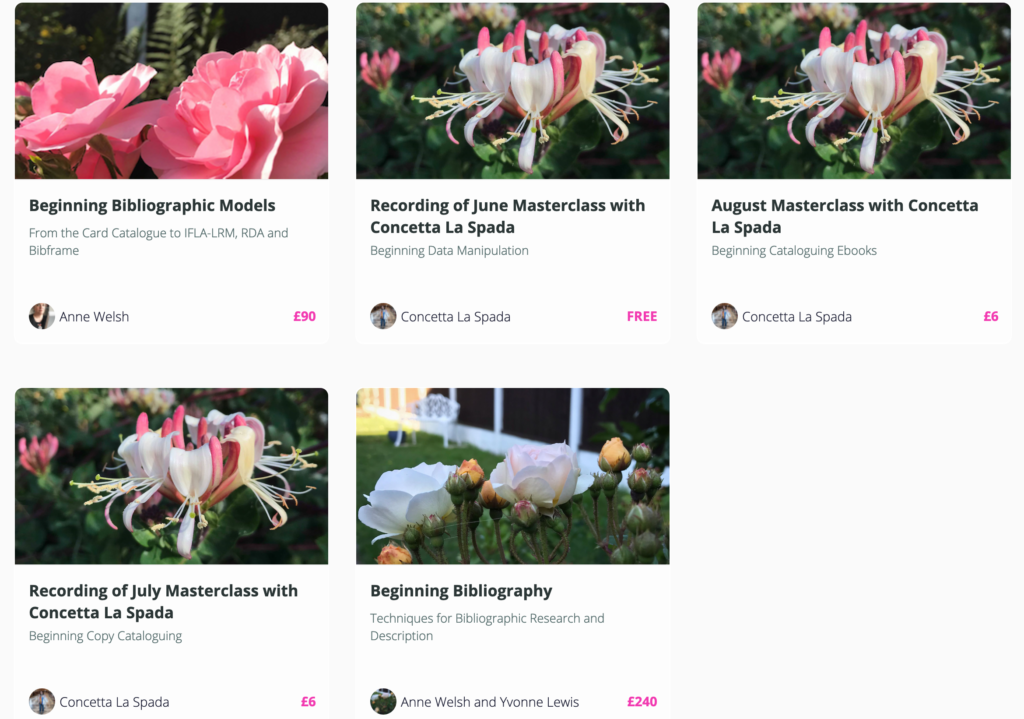
It just occurred to me that while we’re still working on the format for our newsletter and, not wanting to overwhelm the excellent LIS-UKBIBS mailing list with too many emails, it might be useful to provide you with a snapshot of what’s currently open for booking on the Beginning Cataloguing Online School, and provide you with a sneaky peek of what’s under development and coming soon:
Continue reading “Currently Booking: Bibliography, eBooks and Masterclass Recordings”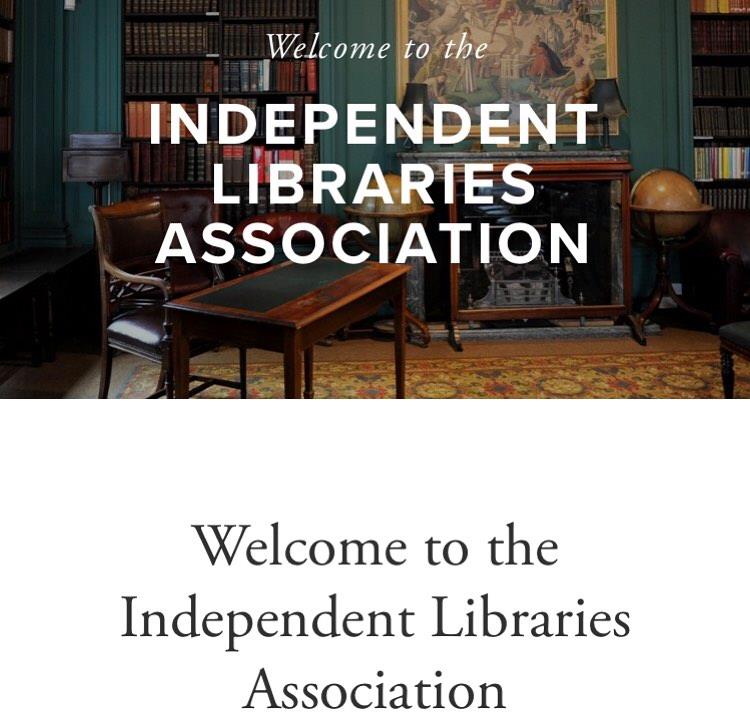
The Independent Libraries Association has accepted our offer of a free place for one of their members on Beginning Bibliography, and we’re very grateful to their committee for administering the award.
If you work in a library that is a member of ILA, you have until 3 August to apply. The text here is a copy of their news release on the scholarship place:
Continue reading “ILA Scholarship Place”An event report for Concetta‘s July Masterclass is under preparation by one of the attendees, but for now you can see her presentation (registration required), read the live tweets with links to the tools she covered, and book her August Masterclass, Beginning Cataloguing Ebooks, which takes place on 10 August.
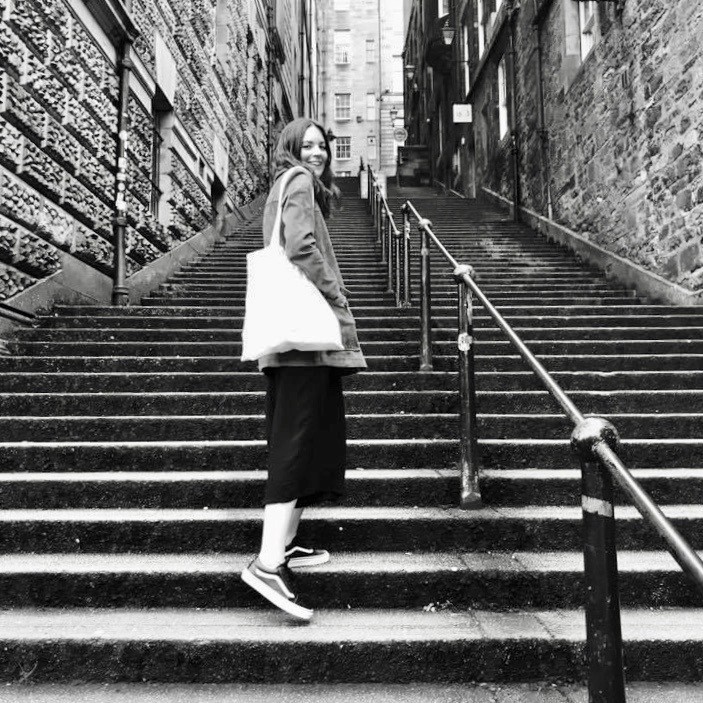
This blog post by Hannah Hillen, University of Manchester, provides a summary of Concetta La Spada’s June Masterclass and some of the things Hannah learned from it.
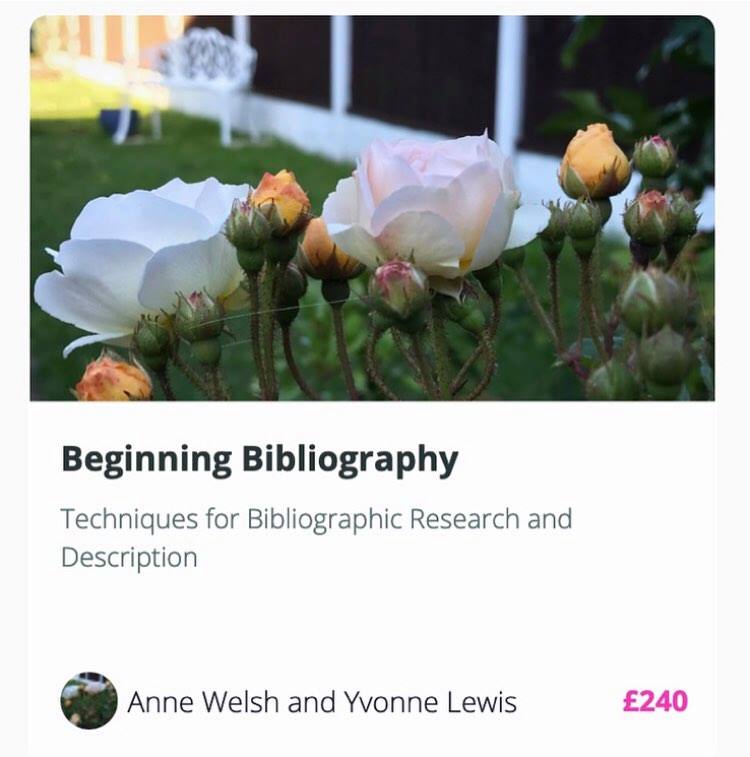
Want to learn the core techniques of bibliographic research? Getting into book collecting and keen to know exactly which impression of which edition of a book you’ve just purchased? Moving from modern cataloguing to working with early materials and need to get on top of format and collational formulae?
We’ve got a course for you. Beginning Bibliography has just opened for booking. 20-25 hours of learning at your own pace, with presentations, readings and activities including creating quasi-facsimiles (title page transcriptions), collation (working out the format of the book and how its pages were ordered and bound), and some paper-folding excises.
The introductory presentation is free to watch in order to help you make up your mind. Here’s the curriculum:
Continue reading “Open for Bookings: Beginning Bibliography”